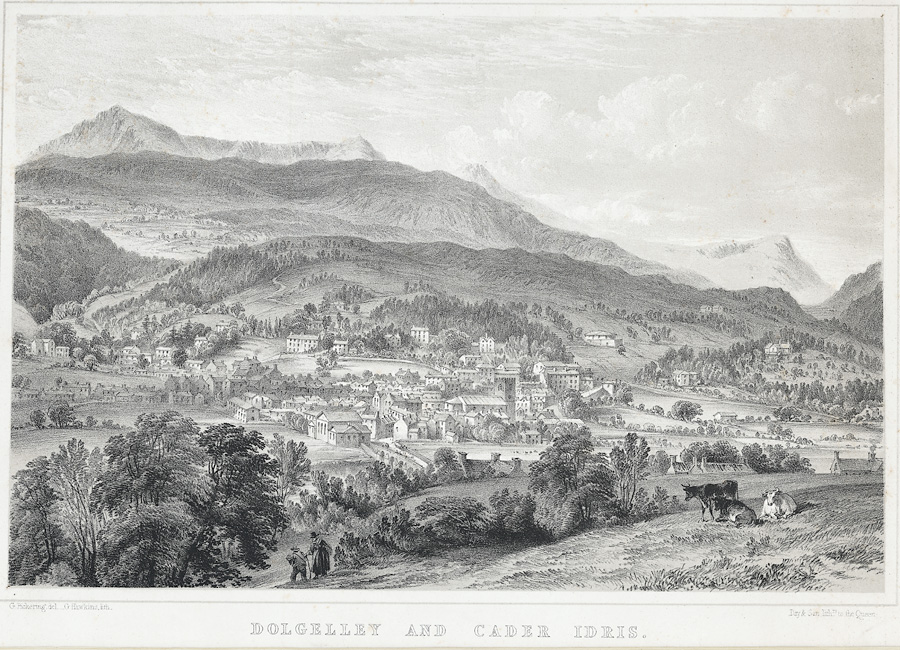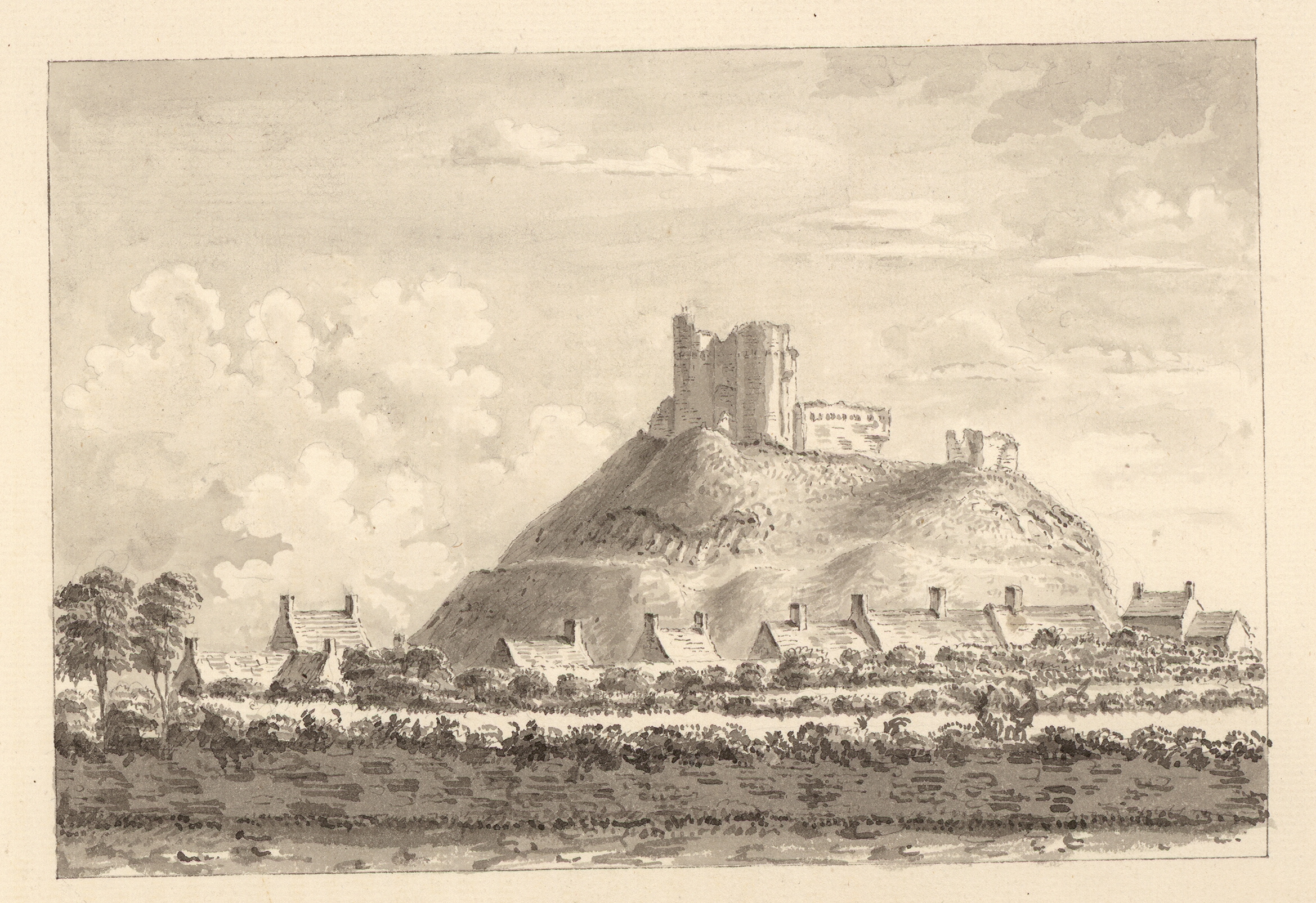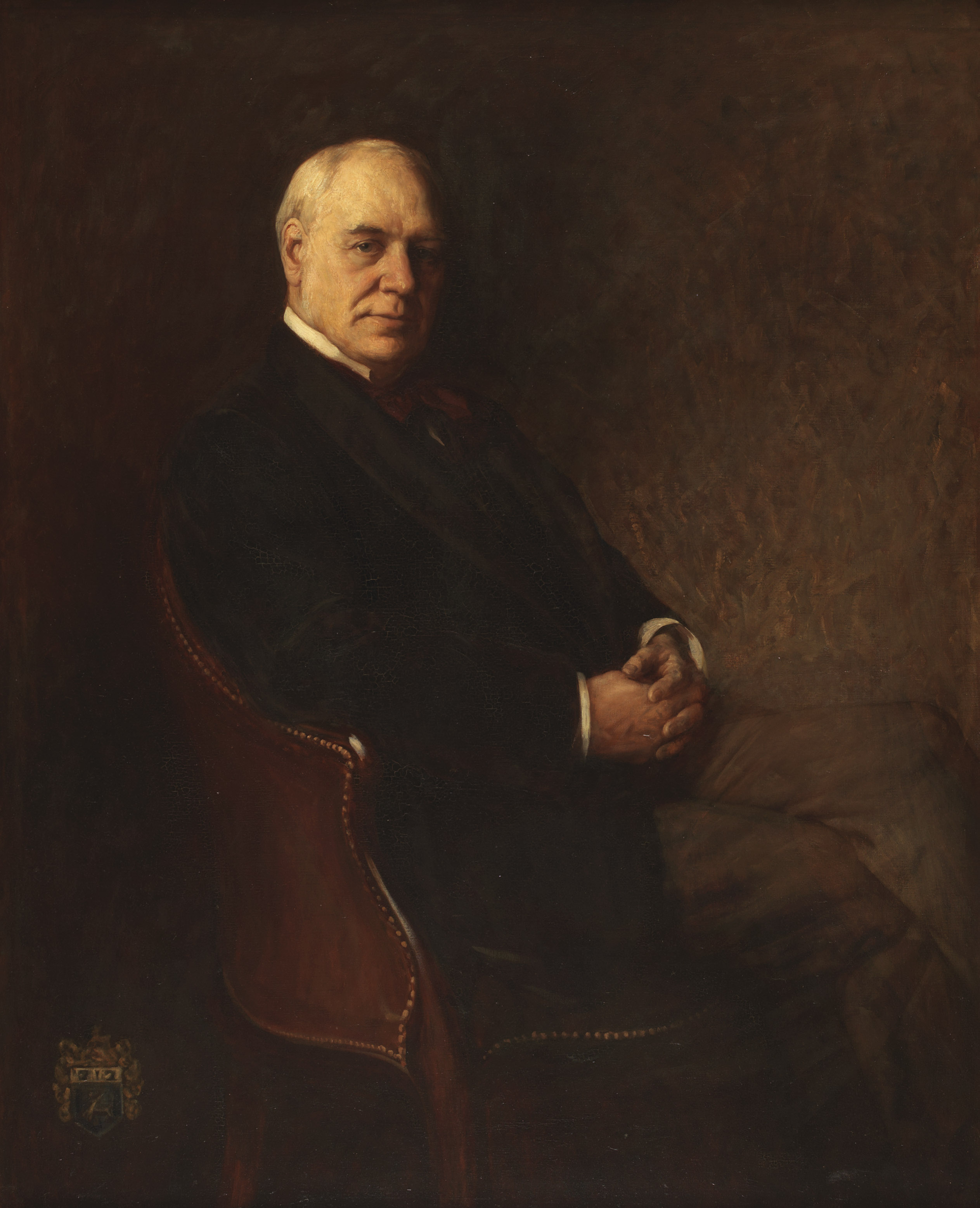|
David Ellis (priest)
David Ellis (31 August 1736 – 1795) was a Welsh Anglican clergyman, poet and transcriber of manuscripts. Life Ellis was born to Ellis and Elizabeth David, of Dolgellau, north Wales. After attending the school in Ystrad Meurig, he studied at Jesus College, Oxford, but only from March to June 1764. He was then ordained deacon (1764) and priest (1765), serving as curate in Llanberis, Llangeinwen, Derwen and Amlwch before his appointment as vicar of Llanberis in 1788. In the following year, he became vicar of Criccieth, holding the post until his death. In addition to his clerical duties, Ellis wrote poetry and translated works by others from English into Welsh. He also transcribed many Welsh manuscripts, some of which are now preserved in the National Library of Wales The National Library of Wales ( cy, Llyfrgell Genedlaethol Cymru), Aberystwyth, is the national legal deposit library of Wales and is one of the Welsh Government sponsored bodies. It is the biggest library ... [...More Info...] [...Related Items...] OR: [Wikipedia] [Google] [Baidu] |
Dolgellau
Dolgellau () is a town and community in Gwynedd, north-west Wales, lying on the River Wnion, a tributary of the River Mawddach. It was the traditional county town of the historic county of Merionethshire ( cy, Meirionnydd, Sir Feirionnydd) until the county of Gwynedd was created in 1974. Dolgellau is the main base for climbers of Cadair Idris and Mynydd Moel which are visible from the town. Dolgellau is the second largest settlement in southern Gwynedd after Tywyn and includes the community of Penmaenpool. Etymology The name of the town is of uncertain origin, although ' is Welsh for "meadow" or "dale", and ' (soft mutation of ') means "grove" or "spinney", and is common locally in names for farms in sheltered nooks. This would seem to be the most likely derivation, giving the translation "Grove Meadow". It has also been suggested that the name could derive from the word ', meaning "cell", translating therefore as "Meadow of onks'cells", but this seems less likely considering ... [...More Info...] [...Related Items...] OR: [Wikipedia] [Google] [Baidu] |
Criccieth
Criccieth ( cy, Criccieth ) is a town and community on the Llŷn Peninsula in the Eifionydd area of Gwynedd in Wales. The town lies west of Porthmadog, east of Pwllheli and south of Caernarfon. It had a population of 1,826 in 2001, reducing to 1,753 at the 2011 census. The town is a seaside resort, popular with families. Attractions include the ruins of ''Criccieth Castle'', which have extensive views over the town and surrounding countryside. Nearby on ''Ffordd Castell'' (Castle Way) is '' Cadwalader's Ice Cream Parlour'', opened in 1927, whilst ''Stryd Fawr'' (High Street) has several bistro-style restaurants. In the centre lies ''Y Maes'' ("The Field", or town square), part of the original medieval town common.Eira and James Gleasure, ''Criccieth : A Heritage Walk'', 2003Cymdeithas Hanes Eifionydd, Wales, 28 pages The town is noted for its fairs, held on 23 May and 29 June every year, when large numbers of people visit the fairground and the market which spreads through m ... [...More Info...] [...Related Items...] OR: [Wikipedia] [Google] [Baidu] |
Welsh Poets
Welsh poetry refers to poetry of the Welsh people or nation. This includes poetry written in Welsh, poetry written in English by Welsh or Wales based poets, poetry written in Wales in other languages or poetry by Welsh poets around the world. History Wales has one of the earliest literary traditions in Northern Europe, stretching back to the days of Aneirin ( fl. 550) and Taliesin (second half of the 6th century), and the haunting ''Stafell Cynddylan'', which is the oldest recorded literary work by a woman in northern Europe. The 9th century ''Canu Llywarch Hen'' and ''Canu Heledd'' are both associated with the earlier prince Llywarch Hen. Welsh poetry is connected directly to the bardic tradition, and is historically divided into four periods.Loesch, K. T. (1983). Welsh bardic poetry and performance in the middle ages. In D. W. Thompson (Ed.), ''Performance of Literature in Historical Perspectives'' (177–190). Lanham, MD: University Press of America. The first period, befo ... [...More Info...] [...Related Items...] OR: [Wikipedia] [Google] [Baidu] |
18th-century Welsh Anglican Priests
The 18th century lasted from January 1, 1701 ( MDCCI) to December 31, 1800 ( MDCCC). During the 18th century, elements of Enlightenment thinking culminated in the American, French, and Haitian Revolutions. During the century, slave trading and human trafficking expanded across the shores of the Atlantic, while declining in Russia, China, and Korea. Revolutions began to challenge the legitimacy of monarchical and aristocratic power structures, including the structures and beliefs that supported slavery. The Industrial Revolution began during mid-century, leading to radical changes in human society and the environment. Western historians have occasionally defined the 18th century otherwise for the purposes of their work. For example, the "short" 18th century may be defined as 1715–1789, denoting the period of time between the death of Louis XIV of France and the start of the French Revolution, with an emphasis on directly interconnected events. To historians who expand ... [...More Info...] [...Related Items...] OR: [Wikipedia] [Google] [Baidu] |
Alumni Of Jesus College, Oxford
Jesus College is one of the constituent colleges of the University of Oxford in England. Its alumni include politicians, lawyers, bishops, poets, and academics. Some went on to become fellows of the college; 14 students later became principal of the college. It was founded in 1571 by Queen Elizabeth I, at the request of a Welsh clergyman, Hugh Price, who was Treasurer of St David's Cathedral in Pembrokeshire. The college still has strong links with Wales, and about 15% of students are Welsh. There are 340 undergraduates and 190 students carrying out postgraduate studies. Old members of Jesus College are sometimes known as "Jesubites". From the world of politics, the college's alumni include two Prime Ministers (Harold Wilson of Britain and Kevin Rudd of Australia), Jamaica's Chief Minister and first Premier (Norman Washington Manley), a Speaker of the House of Commons ( Sir William Williams), a leader of the Liberal Democrats (Sir Ed Davey), a co-founder of Plaid Cymru ( D ... [...More Info...] [...Related Items...] OR: [Wikipedia] [Google] [Baidu] |
1795 Deaths
Events January–June * January – Central England records its coldest ever month, in the CET records dating back to 1659. * January 14 – The University of North Carolina opens to students at Chapel Hill, becoming the first state university in the United States. * January 16 – War of the First Coalition: Flanders campaign: The French occupy Utrecht, Netherlands. * January 18 – Batavian Revolution in Amsterdam: William V, Prince of Orange, Stadtholder of the Dutch Republic (Republic of the Seven United Netherlands), flees the country. * January 19 – The Batavian Republic is proclaimed in Amsterdam, ending the Dutch Republic (Republic of the Seven United Netherlands). * January 20 – French troops enter Amsterdam. * January 23 – Flanders campaign: Capture of the Dutch fleet at Den Helder: The Dutch fleet, frozen in Zuiderzee, is captured by the French 8th Hussars. * February 7 – The Eleventh Amendment to the United S ... [...More Info...] [...Related Items...] OR: [Wikipedia] [Google] [Baidu] |
1736 Births
Events January–March * January 12 – George Hamilton, 1st Earl of Orkney, becomes the first Field Marshal of Great Britain. * January 23 – The Civil Code of 1734 is passed in Sweden. * January 26 – Stanislaus I of Poland abdicates his throne. * February 12 – Francis I, Holy Roman Emperor marries Maria Theresa of Austria, ruler of the Habsburg Empire. * March 8 – Nader Shah, founder of the Afsharid dynasty, is crowned Shah of Iran on a date selected by court astrologers. * March 31 – Bellevue Hospital is founded in New York. April–June * April 14 – The Porteous Riots erupt in Edinburgh (Scotland), after the execution of smuggler Andrew Wilson, when town guard Captain John Porteous orders his men to fire at the crowd. Porteous is arrested later. * April 14 – German adventurer Theodor Stephan Freiherr von Neuhoff is crowned King Theodore of Corsica, 25 days after his arrival on Corsica on March 20. His reign ends on No ... [...More Info...] [...Related Items...] OR: [Wikipedia] [Google] [Baidu] |
National Library Of Wales
The National Library of Wales ( cy, Llyfrgell Genedlaethol Cymru), Aberystwyth, is the national legal deposit library of Wales and is one of the Welsh Government sponsored bodies. It is the biggest library in Wales, holding over 6.5 million books and periodicals, and the largest collections of archives, portraits, maps and photographic images in Wales. The Library is also home to the national collection of Welsh manuscripts, the National Screen and Sound Archive of Wales, and the most comprehensive collection of paintings and topographical prints in Wales. As the primary research library and archive in Wales and one of the largest research libraries in the United Kingdom, the National Library is a member of Research Libraries UK (RLUK) and the Consortium of European Research Libraries (CERL). At the very core of the National Library of Wales is the mission to collect and preserve materials related to Wales and Welsh life and those which can be utilised by the people of Wales fo ... [...More Info...] [...Related Items...] OR: [Wikipedia] [Google] [Baidu] |
Vicar
A vicar (; Latin: ''vicarius'') is a representative, deputy or substitute; anyone acting "in the person of" or agent for a superior (compare "vicarious" in the sense of "at second hand"). Linguistically, ''vicar'' is cognate with the English prefix "vice", similarly meaning "deputy". The title appears in a number of Christian ecclesiastical contexts, but also as an administrative title, or title modifier, in the Roman Empire. In addition, in the Holy Roman Empire a local representative of the emperor, perhaps an archduke, might be styled "vicar". Roman Catholic Church The Pope uses the title ''Vicarius Christi'', meaning the ''vicar of Christ''. In Catholic canon law, ''a vicar is the representative of any ecclesiastic'' entity. The Romans had used the term to describe officials subordinate to the praetorian prefects. In the early Christian churches, bishops likewise had their vicars, such as the archdeacons and archpriests, and also the rural priest, the curate who had the ... [...More Info...] [...Related Items...] OR: [Wikipedia] [Google] [Baidu] |
Ystrad Meurig
Ystrad Meurig (or Ystradmeurig) is a village and Community (Wales), community in Ceredigion, Wales. It lies on the B4340 road northwest of the town of Tregaron, on the edge of the Cambrian Mountains. History and amenities Ystrad Meurig was the site of a Grammar School founded bEdward Richard(1714-1777) in about 1734 . It subsequently offered pupils a course which included significant elements of Classics and Divinity. The school was thereby enabled to provide a basic training for many Welsh language speakers who wished to enter the ordained Christian ministry, ministry - being one of the few establishments licensed for the purpose by the Bishop of St. David's. Several former pupils were later to achieve considerable distinction within the Welsh church. This arrangement continued until the 1820s, when the existing school was finally superseded by a newly established college, which has since been transformed into the current University of Wales, Lampeter. The Grammar School at ... [...More Info...] [...Related Items...] OR: [Wikipedia] [Google] [Baidu] |
Amlwch
Amlwch (; ) is a port town and community in Wales. It is situated on the north coast of the Isle of Anglesey, on the A5025 which connects it to Holyhead and to Menai Bridge. As well as Amlwch town and Amlwch Port, other settlements within the community include Burwen, Porthllethog/Bull Bay and Pentrefelin. The town has a beach in Llaneilian, and it has significant coastal cliffs. Tourism is an important element of the local economy. At one time it was a booming mining town that became the centre of a vast global trade in copper ore. The harbour inlet became a busy port and significant shipbuilding and ship repair centre, as well as an embarkation point with boats sailing to the Isle of Man and to Liverpool. The community covers an area of about 18 square kilometres. Town Centre The name Amlwch – a reference to the site of the town's harbour, Porth Amlwch – derives from Welsh ''am'' ("about, on or around") and ''llwch'' (an old word meaning "inlet, creek" - similar to the Ga ... [...More Info...] [...Related Items...] OR: [Wikipedia] [Google] [Baidu] |
Derwen
Derwen is a rural village in the south of Denbighshire, Wales. It lies approximately halfway between Corwen and Ruthin, in the upper part of Dyffryn Clwyd on the north side of the River Clwyd, opposite the village of Bryn Saith Marchog. The population of the community as taken at the 2011 census was 426. The community includes the village of Clawddnewydd. An old Celtic Cross stands in the village, near the church, dating from the early middle ages. There is also the Grade II Ffynnon Sara. Notable residents * William Jones (Ehedydd Iâl) (1815–1899), poet and hymnist. * Charles Evans (mountaineer) Sir Robert Charles Evans M.D., DSc, (19 October 1918 – 5 December 1995) was a British mountaineer, surgeon, and educator. He was leader of the 1955 British Kangchenjunga expedition and deputy leader of the 1953 British Mount Everest expedi ... (1918-1995) See also * St Mary's Church, Derwen References Denbighshire Villages in Denbighshire {{Den ... [...More Info...] [...Related Items...] OR: [Wikipedia] [Google] [Baidu] |







.jpg)
